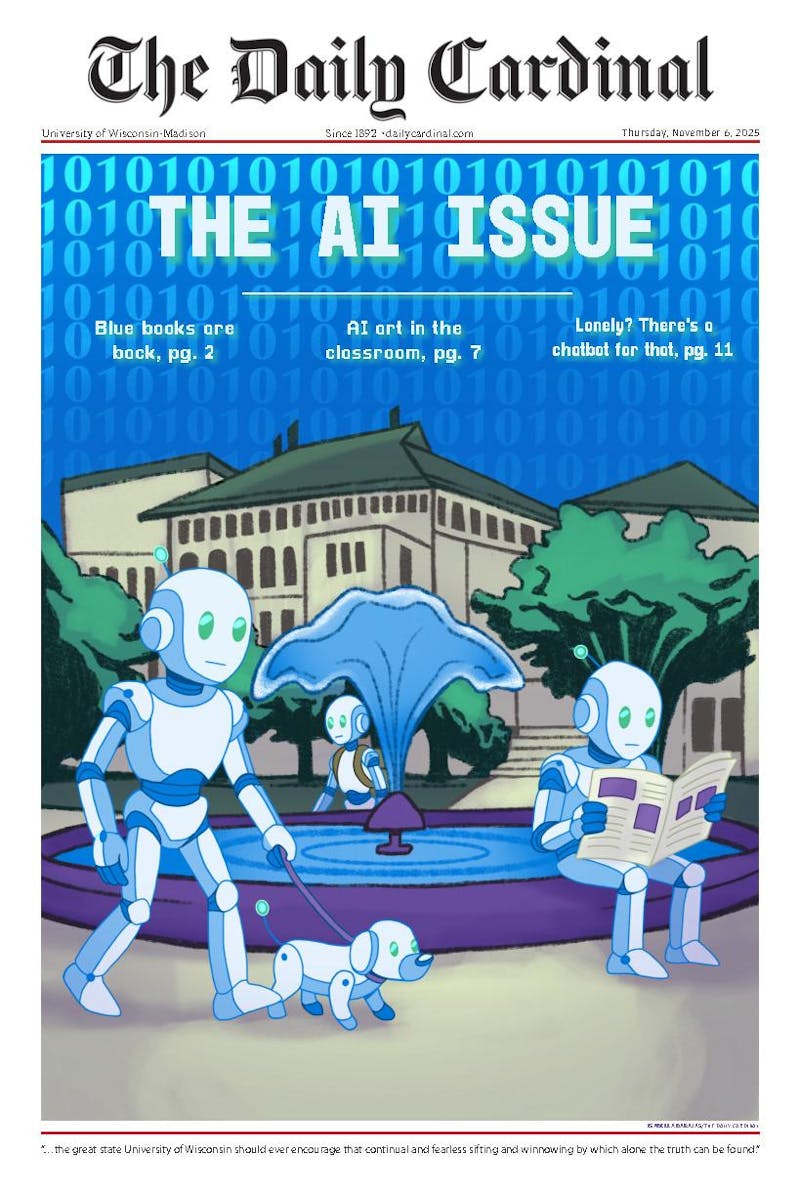The University of Wisconsin-Madison Law School laid off professor and director of the Public Defender Project John Gross due to administrative budget cuts. This will be his last year teaching, and without him, some law students fear for the public defense program’s future.
The Public Defender Project involves two seminars, one class and a summer internship with a public defender. As the project’s director, Gross’s departure will be a huge loss to students, Tanner Sarauer, co-president of the Wisconsin Association of Criminal Defense Students (WACDLS) said. Saurauer added that Gross always puts his students’ interests and needs first.
WACDLS co-president Halle Geiger said much of the frustration came from the administration’s avoidance in explaining why Gross in particular was laid off, as the Public Defender Project’s counterpart, the Public Prosecution Project, remains intact.
In honor of their professor, WACDLS gathered anonymous responses from students and the public sharing their experiences with Gross. Nearly 100 people wrote in.
Part of one response read, “Gross is not only a phenomenal educator, but also cares deeply about the well-being of his students. He is such a genuinely warm and inviting person and clearly enjoys engaging with students.”
Another person wrote, “He has been a generous advisor and resource, connecting students to opportunities and encouraging us to think critically about justice. Losing him would mean losing not just a teacher, but a cornerstone of the school’s public service mission.”
Sarauer and Geiger said upon their request, the law school administration held a ‘visioning session’ for students in the Public Defender Project to voice their opinions on its future.
During the session, the law school administration said they chose cuts that would least impact students, programs and research. But Sarauer and Geiger said Gross is deeply connected to those parts of the law school. Sarauer added that for this reason, a student in the session questioned the administration’s reasoning behind the layoff.
The law school said they’re working with the State Public Defenders Office and other stakeholders in the project to keep it running next year in an email to The Daily Cardinal.
Sarauer felt students’ grievances and requests were heard by administrators, but he said they didn’t provide adequate solutions. “It felt like they were told what not to say,” Sarauer said.
The future of the Public Defender Project
Although UW Law is still trying to maintain a similar format for the future of the Public Defender Project, Geiger said it is likely to become more of a clinic program taught by adjunct attorneys. The classes will move to being at night when the attorneys are done with their day jobs.
One logistical issue, however, would include the busy and overworked State Public Defender offices, which don’t have the capacity for more than two or three interns at a time, Geiger said.
“You're expecting [the attorneys] to maintain an already overwhelming caseload and train students on top of that,” Geiger said. “I don't think SPD has really thought about [that] yet, and at least right now there's not been any talk about additional pay or anything.”
A clinic format, on the other hand, could allow students to work directly with attorneys through externships and credited legal work supervised by licensed attorneys. This program would leave out students who want to practice law outside of Wisconsin or in a rural area.
Both Sarauer and Geiger themselves are part of the Public Defender Project and the Wisconsin Innocence Project — an organization aimed at releasing the wrongfully convicted. If the Public Defender Project became a clinic, students would be limited to only one project per semester. Despite that, Sarauer said becoming a clinic is the next best move.
Both want to see a balance between an educational and practical approach to public defense. They see a chance for administration and SPD to collaborate while still giving priority and control to students, rather than adjunct attorneys lecturing students.
“Gross has lived in academia studying funding for state public defenders, supplying public defense to clients,” Sarauer said. “He [provides] us with more of a critical approach to understand how public defense operates, how they decide where our clients are and how we approach trial and plea bargaining.”
While the Public Defender Project’s future is in the air, Sarauer and Geiger said WACDLS remains determined to hold administration accountable and prioritize student demands during the restructuring.






